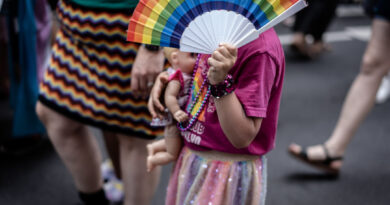Supreme Court Rejects West’s Attempt to Share Write-In Option with Pennsylvania Voters
The U.S. Court of Appeals for the Third Circuit rejected Cornel West’s appeal of a previous ruling in a one-sentence order.
The U.S. Supreme Court on Oct. 31 rejected independent presidential candidate Cornel West’s request to require swing state Pennsylvania officials to advise voters they could write him in as a candidate.
A lower court in Pennsylvania removed his name from the Nov. 5 ballot after finding the paperwork in support of his candidacy was not in order. West’s appeals through the Pennsylvania court system were denied. He asked federal courts to intervene and they declined to do so.
In the emergency application, he filed with the U.S. Supreme Court on Oct. 30, West asked the nation’s highest court for an injunction directing Pennsylvania officials “to post at all polling locations across Pennsylvania on election day that Cornel West is a candidate for President of the United States and voters can write him in on their ballot.”
U.S. Supreme Court rules allow West to refile the application with another justice.
West also filed suit in federal court in an effort to get on the Pennsylvania ballot.
In an Oct. 10 ruling, U.S. District Judge Nicholas Ranjan expressed concern that the state’s application of Pennsylvania’s election code to West appeared “designed to restrict ballot access to him (and other non-major political candidates) for reasons that are not entirely weighty or tailored, and thus appear to run afoul of the U.S. Constitution.”
But the application came too late in the election cycle, so Ranjan said he was “constrained” to deny it.
The U.S. Supreme Court “has reminded federal district judges that tinkering with the mechanics of a national election at a late stage is not a wise idea,” the judge said.
The application is pending before Alito.
Kennedy, a Democrat-turned-independent, suspended his campaign on Aug. 23 and endorsed former President Donald Trump, the Republican presidential candidate.
Since then, Kennedy has tried to remove his name from ballots in hotly-contested states. He previously said he was doing this to avoid siphoning votes away from Trump in swing states while leaving room for a longshot bid for the presidency in a possible so-called contingent election, which would put the presidency in the hands of the U.S. House of Representatives in the event of an electoral college deadlock.
The ruling came after the Nevada Supreme Court determined on Sept. 6 that the party’s candidates could not appear on the ballot because they used the wrong form when gathering ballot-access signatures from the public.
West’s departure from the Pennsylvania ballot has left four candidates to vie for the Keystone State’s 19 electoral votes. The candidates remaining on the ballot are Trump, Democratic nominee Vice President Kamala Harris, Stein, and Libertarian nominee Chase Oliver.
West, a self-described socialist, is the Dietrich Bonhoeffer professor of philosophy and Christian practice at Union Theological Seminary in New York City.
Tom Ozimek and Sam Dorman contributed to this report.





